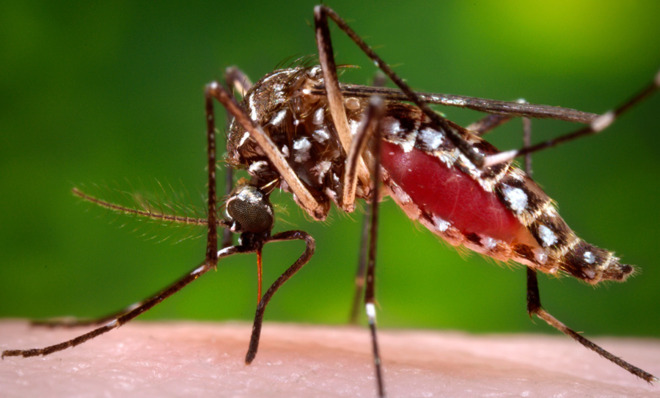Mosquito sex might be the key to fighting malaria
Because if there were fewer mosquitos...

A free daily email with the biggest news stories of the day – and the best features from TheWeek.com
You are now subscribed
Your newsletter sign-up was successful
Mosquitoes and the diseases they carry kill humans. That much is clear. According to the World Health Organization's most recent report, there were an estimated 219 million cases of malaria reported in 2010, resulting in roughly 660,000 deaths, 90 percent of which occurred in Africa.
That's why a cogent and defensible argument can be made that the world would be better off if pathogen-carrying species were to go extinct. The scourge of mosquito-borne disease is why we pour millions of dollars into researching new technology to stave off bites, a few of which we've talked about previously.
Now, bite deterrence is at least part of a holistic and sustainable solution to the epidemic. But what if we were able to diminish mosquito populations before they could bite?
The Week
Escape your echo chamber. Get the facts behind the news, plus analysis from multiple perspectives.

Sign up for The Week's Free Newsletters
From our morning news briefing to a weekly Good News Newsletter, get the best of The Week delivered directly to your inbox.
From our morning news briefing to a weekly Good News Newsletter, get the best of The Week delivered directly to your inbox.
A new study published in PLoS Biology by researchers at the Harvard School of Public Health and the University of Perugia looked closely at the mating habits of mosquitoes. The thinking behind the research isn't complicated: Stopping mosquitoes from having sex means less bugs to deal with, which (obviously) means less carriers for transmissable disease.
Researchers in this case zeroed in on a sex hormone delivered by the male mosquito into the female during sex. 20-hydroxy-ecdysone, or 20E, sends a "mating signal" to the female mosquito's body, instructing it to devote its resources to egg production. Researchers write that blocking the transmission of 20E offers "novel opportunities for the control of mosquito populations that transmit malaria."
The 20E mating hormone interacts with a protein inside the female's reproductive tract to stimulate egg production by boosting fat levels in her ovaries. More fat = more eggs produced in shorter amounts of time. A dearth of 20E is why "virgin females," as Scientific American notes, "rarely develop eggs."
How exactly we would block the male-to-female transmission of 20E is somewhat less clear. We could deliver a chemical blocker through insecticides, although mosquitoes are capable of developing a resistance. Or we could release large swarms of sterile males genetically modified to compete with non-sterile males. This would theoretically diminish the number of insects in the next generation. In either scenario, the end-goal is the same: Less mosquito love-making could mean a potential human life saved.
A free daily email with the biggest news stories of the day – and the best features from TheWeek.com
(HT: Scientific American)
-
 Switzerland could vote to cap its population
Switzerland could vote to cap its populationUnder the Radar Swiss People’s Party proposes referendum on radical anti-immigration measure to limit residents to 10 million
-
 Political cartoons for February 15
Political cartoons for February 15Cartoons Sunday's political cartoons include political ventriloquism, Europe in the middle, and more
-
 The broken water companies failing England and Wales
The broken water companies failing England and WalesExplainer With rising bills, deteriorating river health and a lack of investment, regulators face an uphill battle to stabilise the industry